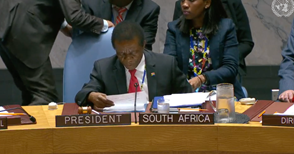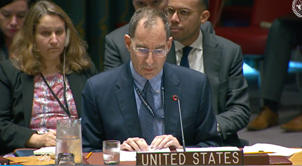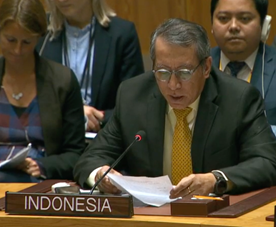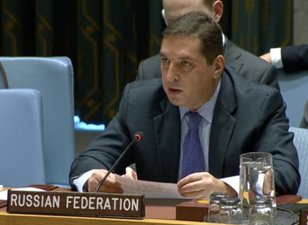THE FBA SDNY UNITED NATIONS REPORTER SERIES
By Alex Wang[1]
FBA UN Reporter
November 22, 2019

On October 30, 2019, the Security Council held its 8651st meeting, and it was directed by the President of South Africa. The meeting was focused on the situation in the Western Sahara.
The Security Council addressed whether it should interfere with the self-determination of the people from Western Sahara to create peace in their own country. Each attendee represented their respective country and, after the vote, every country was given the opportunity to speak on why they voted the way they did. While most countries are in favor of intervention, certain countries voted against such intervention.
Amongst the countries that voted in favor was the United States which noted that the matter in Western Sahara is urgent and requires immediate attention even if doing so means encroachment in the autonomy of the country by outside intervention.

The United Kingdom also supported intervention, but proposed a less immediate response. They proposed a compromise focused on negotiation and other alternative dispute resolution methods, in accordance with the UN Charter.
Cote D’Ivoire noted that it was in favor of such intervention, and welcomed the work from the UN and support from the US. Other countries in favor included the Dominican Republic, Peru, Indonesia, France, Poland, Equatorial Guinea, and Kuwait. However, Kuwait noted that the lack of unanimity was unfortunate.

While most were in favor, some countries voted against the proposal. Both Russia and China commended the effort and work done by the UN in Western Sahara. However, both countries voted against interference by the Security Council.

Russia provided detailed reasons for its opposition. While it supported direct talks between Morocco and the Polisario Front, it felt bound to both states through their “historical friendship,” and any result and outcome achieved through the interference by the Security Council would not be sustainable and long lasting. It favored a diplomatic conversation between the States facilitated by the UN, but not interference. In general, the Russian Federation expressed displeasure that the Security Council had, in recent years, made changes to the previous Security Council Resolution Agreement, although these were not specified. He argued that these changes “undermine and dilute the pre-agreed on parameters” and therefore are in conflict with the UN Charter. He said Russia would not support these amendments, had not consented to them, and would not support any decisions made under this new agreement.
The meeting closed with the President recognizing the importance of the mission as well as proposing a series of meetings that would be used to monitor progress. He reiterated that all nations involved in the meetings agreed that something had to be done and recognized the peacekeeping work by the UN in Western Sahara. He recognized that the main issue revolved around what type of intervention was appropriate: (a) more direct and immediate with UN intervention; or (b) the option that most preferred, a UN-facilitated negotiation.
[1] Alex Wang is an LLM Student at Fordham Law School Studying ‘US Law’. He is scheduled to graduate in May 2020.